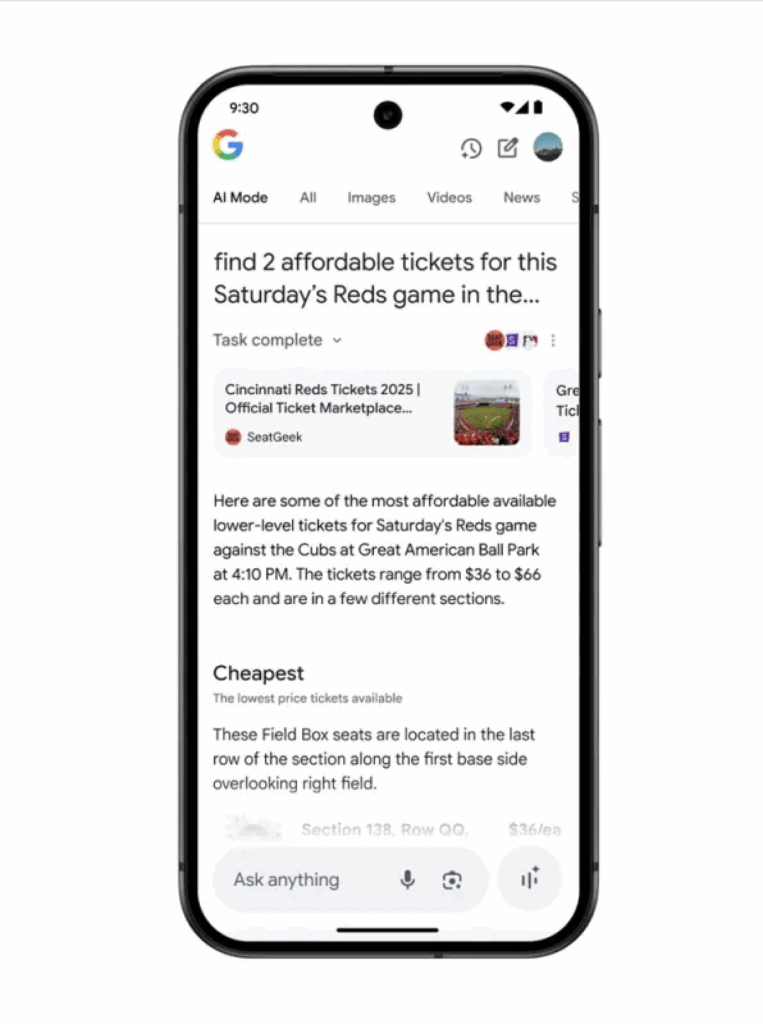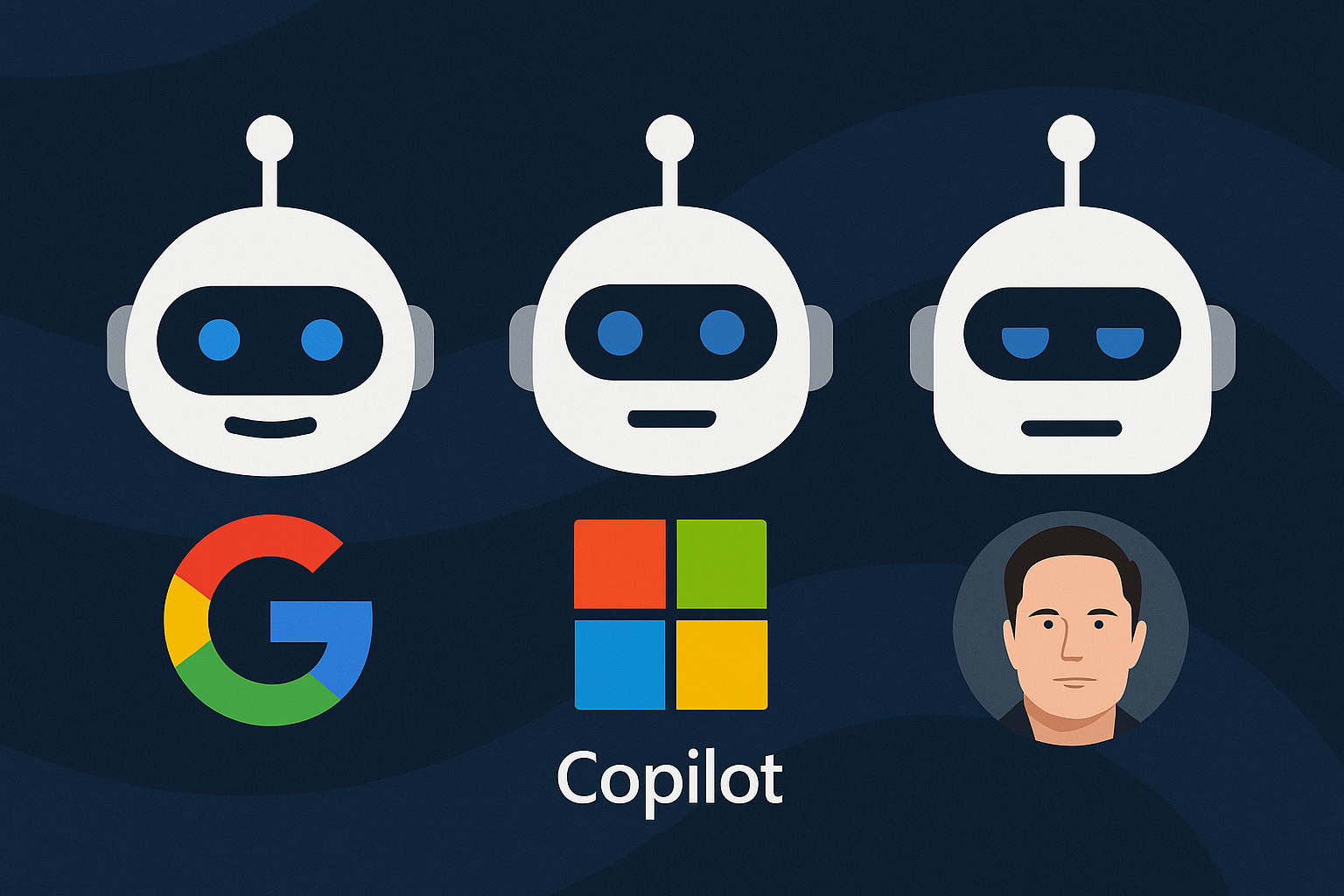Artificial intelligence is no longer just a tool — it’s becoming a companion that takes action. Google, Microsoft, and Elon Musk are all moving deeper into AI agents, systems that go beyond answering questions to actually carrying out tasks on behalf of users. From booking restaurants to drafting emails and even shaping new companies, AI agents are quickly moving from experiment to everyday function.
What’s Happening & Why This Matters
Google’s AI Mode Adds Agents

Google is upgrading AI Mode in Search with agentic features that let users find and book restaurants without leaving the platform. People can enter details like party size, cuisine, and time. The AI then generates a curated list of restaurants with summaries and available slots, redirecting users to services such as OpenTable, Resy, and Tock for final booking. These enhancements showcase the ongoing development of AI agents in everyday technology.
This capability draws from Project Mariner and marks a return to ideas first tested with Google Duplex in 2019. While Duplex faced concerns over misuse, Google is betting that a more transparent, structured approach can win user trust this time.
The catch? Access is currently restricted to Google AI Ultra plan subscribers at $250 per month. However, Google is also expanding AI Mode personalisation for regular users. Searches will tap into browsing history, Maps activity, and prior chats to recommend options. Responses can also be shared via a generated public link, allowing contacts to join the conversation seamlessly.
Microsoft Leans on Copilot
Microsoft is pushing Copilot deeper into its Windows ecosystem. More than just a productivity assistant, Copilot is becoming the connective tissue for search, Office tools, and even Teams security upgrades. Such integrations indicate how AI agents advance in diverse applications. Microsoft envisions a workplace where AI quietly manages documents, meetings, and potential cyber threats while users focus on decision-making.
The company is also experimenting with agent-like services in security. For example, Teams will soon proactively block malicious files, leaning on AI detection rather than waiting for user reports. This puts Copilot and its extensions in direct competition with Google’s agent rollout.

Elon Musk’s Next AI Play: Macrohard

Meanwhile, Elon Musk is preparing to launch a new AI company, Macrohard. The new company directly challenges Microsoft and Google’s dominance. Musk’s history with xAI and his critique of “closed AI systems” suggest this venture may focus on transparency and customisation. This initiative emphasises Musk’s strategic move into the field of AI agents, where competition is fierce.
While details remain limited, reports point to Musk positioning his new company as an alternative to Copilot and Google AI Mode, but infused with his vision of superintelligent AI that pushes boundaries. Given Musk’s influence and the overlap with Tesla’s AI development, this move could alter the competitive map.
TF Summary: What’s Next
The rise of AI agents shows how quickly artificial intelligence is moving from passive to active roles. Google’s AI Mode agents, Microsoft’s Copilot integrations, and Musk’s potential new venture all point to a future where everyday digital tasks are delegated to AI. The balance between convenience, privacy, and cost will determine which of these services users adopt.
The question now is not if AI agents will dominate, but how fast they become standard across industries. As competition heats up, users may gain powerful assistants that manage everything from dinner reservations to workplace security.
— Text-to-Speech (TTS) provided by gspeech


